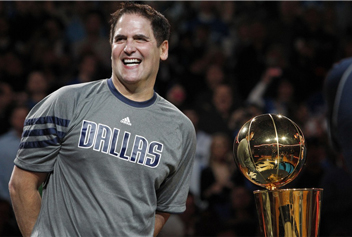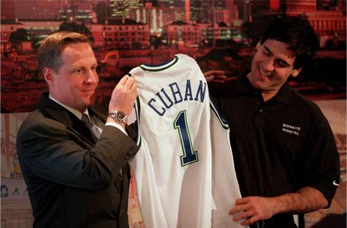© 2014 The Texas Lawbook.
By Mark Curriden – (August 22) – A Texas appeals court handed Fort Worth-based Hillwood Properties III and its owner, Ross Perot, Jr., a major defeat Thursday, finding that there’s no evidence that the Dallas Mavericks are on the verge of insolvency and thus there is no need to appoint a receiver to take over management of the NBA team.
The Fifth District Court of Appeals in Dallas ruled that a state trial judge did not abuse his legal discretion in November 2011 when the judge granted summary judgment in favor of Mark Cuban and his holding company, Radical Mavericks Management.

Lawyers for Hillwood claimed that the Mavericks are “insolvent on a stand-alone basis” because the NBA team is unable to pay its debts when they come due without the contributions of a third party, which, in this case, is billionaire Mark Cuban.
But the appeals court rejected the argument.
“Hillwood cites no authority, and we have found none, to support an interpretation of insolvency that would involve disregarding a historical and ongoing pattern of continuing financial contributions from third parties,” Justice David L. Bridges wrote for a unanimous three-judge panel.
Cuban purchased the Mavericks from Perot in 2000, but Hillwood retained a five percent ownership in the team.

Photo courtesy of dallasnews.com
In 2010, Hillwood sued Cuban, claiming the Shark Tank celebrity had mismanaged the Mavericks, causing its value to deteriorate.
In response, Cuban’s legal team pointed out in court documents that under Perot’s ownership, the Mavericks were declared the “worst professional sports franchise of the 1990s.”
“Indeed, former players accused Perot of putting their safety at risk by selecting inexpensive accommodations in questionable neighborhoods and by having the team travel in an airplane plagued by mechanical problems,” Cuban’s lawyers said in court filings.
Cuban’s lawyers pointed out that the Mavericks’ value has more than quadrupled since he purchased the franchise.
Tom Melsheimer, the managing principal of the Dallas office of Fish & Richardson and lead outside counsel for Cuban, has previously argued that Hillwood wants the courts to improperly decide that all expenses must be able to be paid immediately out of available operating revenues and not routine lines of credit that are used by businesses across the country on a daily basis.

On June 22, 2011, Melsheimer filed a three-page court document that immediately went viral and was later described by lawyers and law professors across the country as the “World’s Greatest Summary Judgment Motion.”
The motion, headlined “World Champion Dallas Mavericks and Radical Mavericks Management’s Motion for Summary Judgment,” was filed 10 days after the Mavericks defeated the Miami Heat for the NBA title.
Four months later, Texas District Judge Craig Smith ruled for Cuban.
“We got all this acclaim for writing the world’s greatest summary judgment motion,” Melsheimer said Friday morning. “I’m just glad that it was successful.”
Hillwood’s lawyer, Don Colleluori, a partner at Figari & Davenport, declined to comment on the ruling until he had discussed it with his client.
Cuban’s legal team includes Melsheimer, Fish & Richardson principal Scott Thomas, and Deborah Hankinson and Rick Thompson of Hankinson LLP.
© 2014 The Texas Lawbook. Content of The Texas Lawbook is controlled and protected by specific licensing agreements with our subscribers and under federal copyright laws. Any distribution of this content without the consent of The Texas Lawbook is prohibited.
If you see any inaccuracy in any article in The Texas Lawbook, please contact us. Our goal is content that is 100% true and accurate. Thank you.
